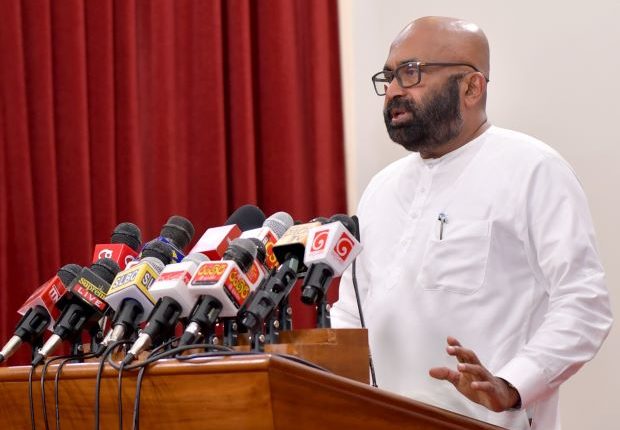Sri Lanka sees Rs 100bln shortfall from IMF revenue target
By Shihar Aneez
COLOMBO – Sri Lanka’s state revenue has seen a shortfall of 100 billion rupees as of now compared to the revenue target agreed with the International Monetary Fund (IMF), State Finance Minister Ranjith Siyambalapitiya said.
Tax cuts for political reasons in December 2019 resulted in a sharp fall in Sri Lanka’s tax revenue to GDP ratio, which was among the lowest in the world. It was only 7.3% in 2021.
The weak tax revenue performance reflected a combination of low tax rates, narrow tax bases, and low collection efficiency, the IMF has said.
President Ranil Wickremesinghe’s government has raised taxes and widened the tax net through reducing tax thresholds.
The IMF has said the Sri Lankan government has committed to an ambitious and primarily revenue-based fiscal consolidation strategy with the tax revenue targeted to reach about 10% of GDP.
“At present, we are around 100 billion rupees short of our revenue target,” Siyambalapitiya told reporters in Colombo.
“But we cannot assume revenue to be the same in every month. If you take excise tax, there is a trend. Highest custom taxes are received in November. But anyway, there is some fall back,” he said.
“There is a number of reasons for this shortfall. One is that we are still in an economic contraction. We have drastically restricted the vehicle imports, which gives the highest revenue for Customs.”
“We have not allowed air conditions to be imported. We have not allowed large TVs to be brought.”
An IMF delegation is in Colombo to do the first review of the performance of the Sri Lankan economy and policies against the committed goals the government agreed.
A drastic deviation could delay the second tranche of a $3 billion loan. However, the government is confident that it has achieved most of the hard goals it agreed with the global lender.
-economynext.com



Comments are closed, but trackbacks and pingbacks are open.